Passing it Forward
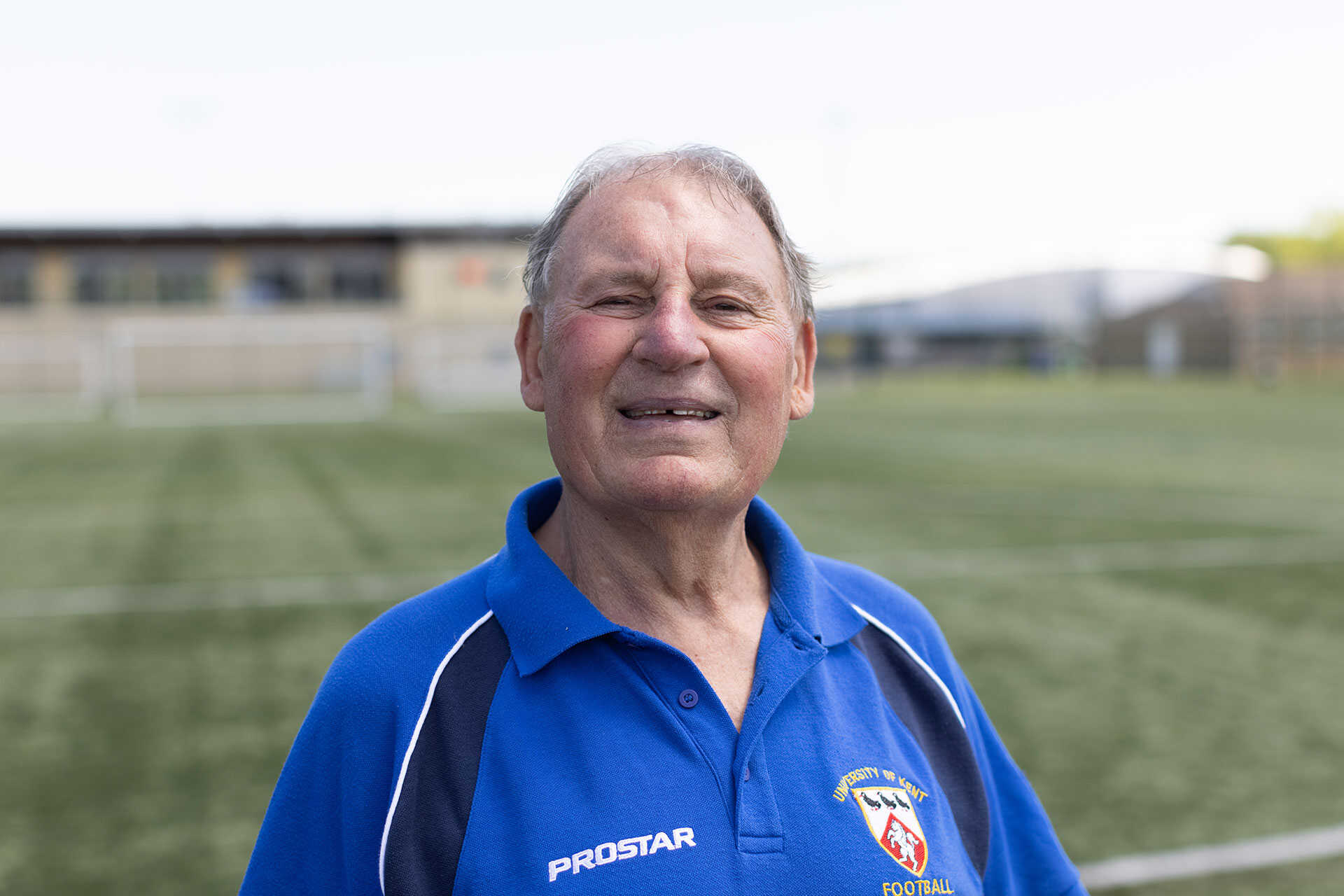
PASSING IT FORWARD
Mike Wilkins MBE - by Rhys Higgins
“When I was asked to be Director of Sport I was so proud. My upbringing began from the largest pre-fabricated council housing estates in Europe, my mother and father worked in a tailoring factory, I left school at the age of 15 with no qualifications, started work as a butcher and now I was being offered Director of Sport, which went so well I was awarded an MBE – what a journey!”
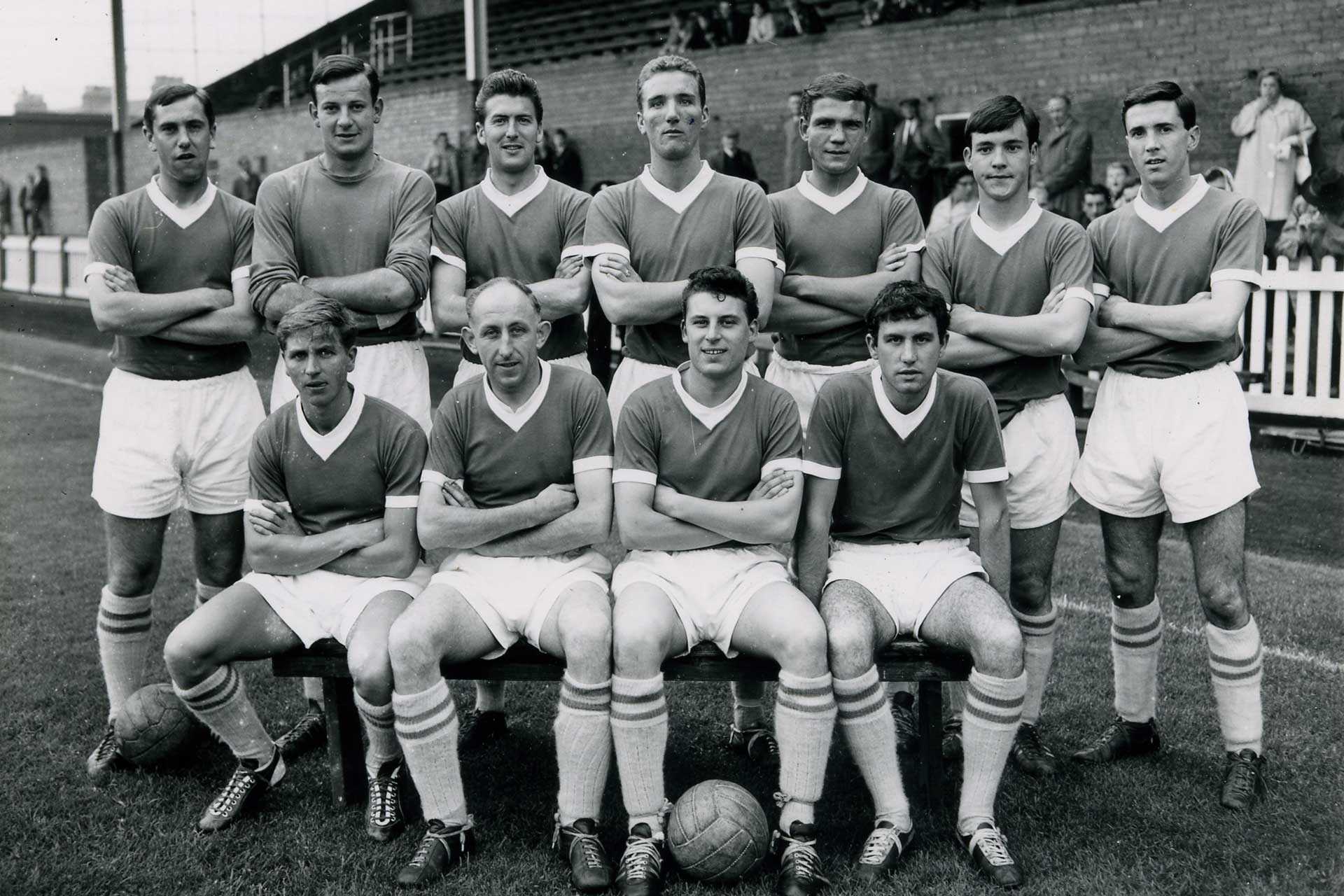
Pictured above: York City team, 1961 – Mike is seated with the ball at his feet
Mike grew up in Leeds with a passion for football, rugby league and cricket. The former Director of Sport’s sporting break arose when he was 17, while working as a butcher. He signed pro for Bradford City; a Bradford City Programme profile on Mike in March 1959 recorded that he had scored 29 goals in 31 games with two months of the season still to go.
The following season, Mike sustained a serious knee injury ending his professional career at the young age of 19. Mike loved to play football and made his way back through non-league. During a spell for Canterbury City his knee injury finally overcame him, and he was forced to stop playing at the age of 28.
However, he continued coaching and while working with Brett Sports he decided to visit the University of Kent and ask the Director of Sport, George Popplewell, if he could train the team there. This is where his love affair with Kent would begin.
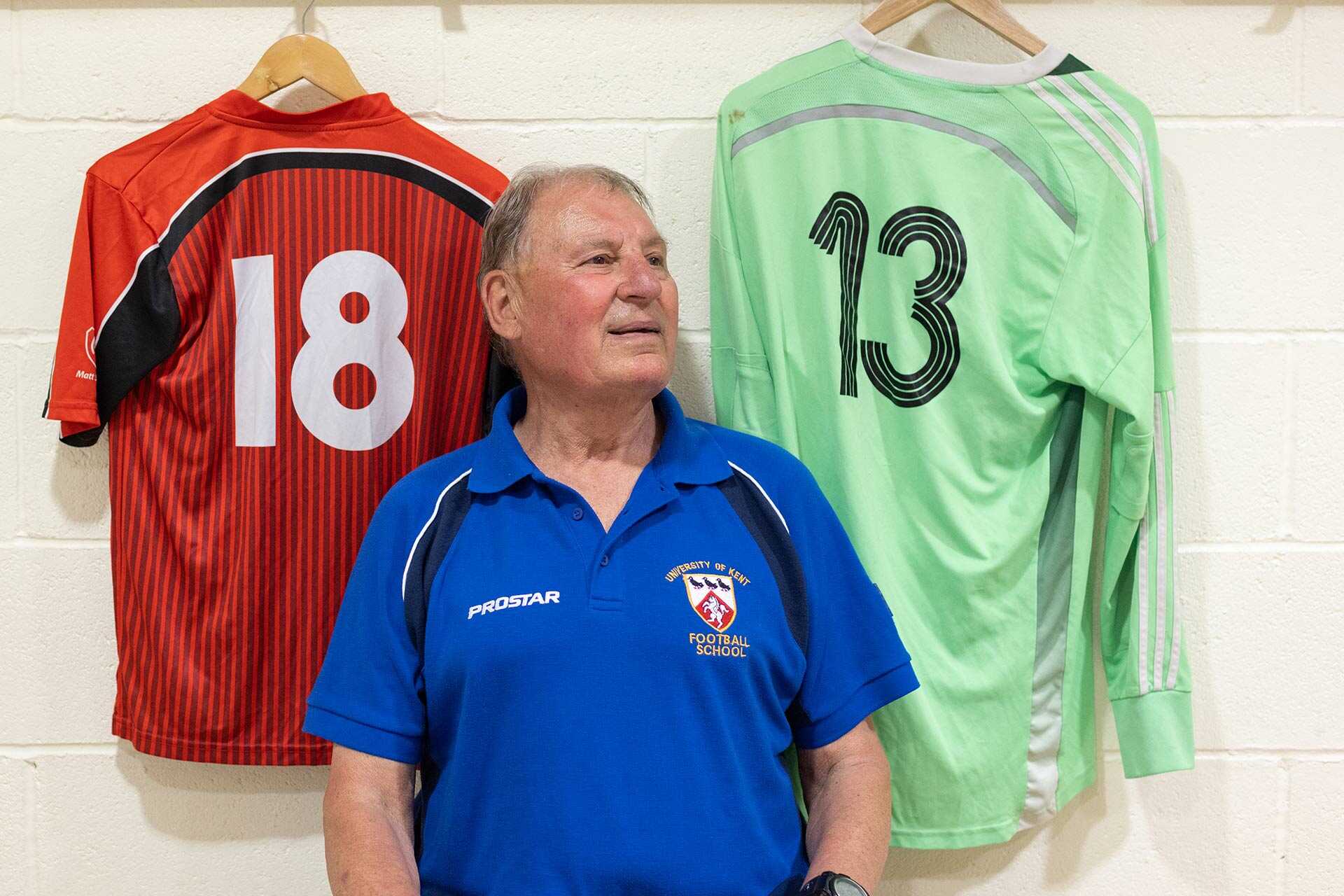
The University of Kent at Canterbury
“In 1971 the University advertised a job for a part time sports hall assistant. I applied for it and George Popplewell and his wife Elaine, who was Assistant Director, were magnificent for me. They gave me an opportunity, considering I was a butcher with an injured knee. They gave me a career.”
Mike’s first taste of university football was in 1971 when he was asked to coach the first team.
“I couldn’t believe what a shambles it was. I took a session and thought the better players were in the second team. At the end of the season, I stopped, and because I’d been involved in Rugby League I took over the University rugby team.
“Then in 1974 the football club came asked me again if I’d take them. I agreed but only if I had total control. I must select the team, captains and the players must train, or they would not be selected. At first it was difficult because the students had got used to picking their own team and not training. They would say, ‘I can’t play this week, I’ve got a party. I’ll be back next week’. I was like, ‘No you won’t!’ It took two seasons to get all my ideas across.”
Mike was able to rise through the University ranks and after holding the positions of Senior Sports Hall Assistant (1978) and Assistant Director (1984), he became Director of Sport in 1992.
“I started at the bottom with little education. Mr Popplewell encouraged me to do all my coaching courses and I found that because my education was so poor, I struggled to do the theory papers. I went back to night school to do two O levels, in English and Sociology, as well as working full time. Then I did a diploma in Recreational Management followed by a six- year part time degree, achieving a BA in Social Science. In all I spent ten years studying, but throughout I never stopped running the football club during that period. It was hard work.”
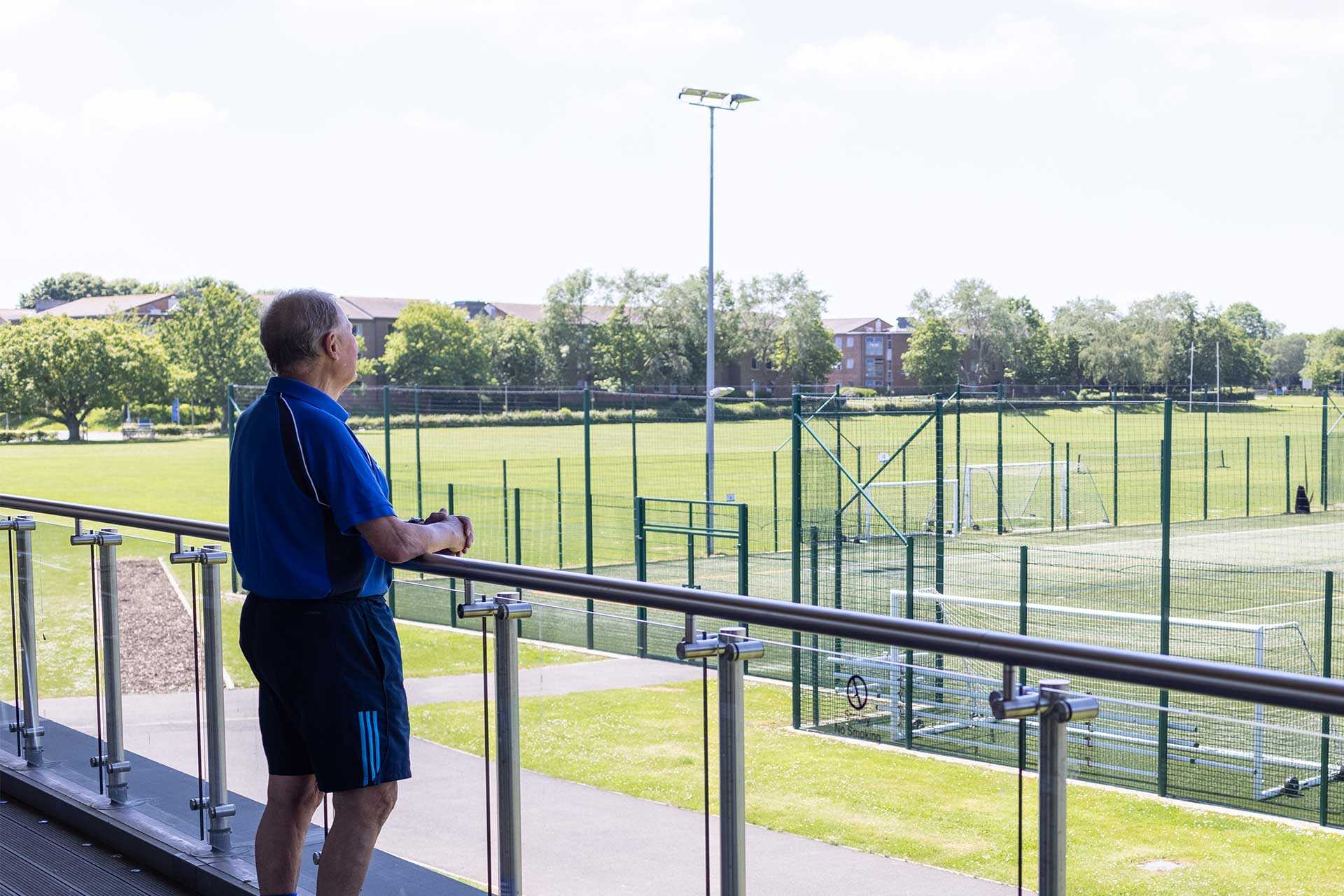
Mike played a pivotal role in developing the sports facilities at the University and thanks to his expertise and enthusiasm, Kent became the first university in England to have a synthetic pitch.
“When the University wanted to build the Park Wood housing on the football fields, they had to seek permission from Sport England. They had a ruling that you could not change the use of football fields unless you enhanced your facilities. The University agreed to purchase a synthetic pitch and I went for the best.
“I also got a great financial deal because I was playing companies up against each other. The companies wanted to use the Kent synthetic pitch as a selling point for them to break into the university sector.
“I went to Holland to inspect Desso pitches, which at the time were the best pitches. Now nearly all the Premier League teams have them. The early ones were sand based and the sand that came in was river sand from Holland.”
Whilst working at the University, Mike was asked by the FA to set up a Kent County FA Coaching Association. He is an FA ‘A’ Licence coach.
One of Mike’s tasks was to try to bring top coaches to the Association. ‘‘I was really lucky to bring in Ron Greenwood, previously West Ham and at the time the England Manager. My role was to pick Ron up from the train and take him for a bite to eat. I was lucky enough to have a one-to-one with the England Manager. For any aspiring coach it was brilliant to be with the best.”
Mike also coached in the US, spending the summers of 1976-83 coaching at soccer schools. Coaches were employed from all over the world and that led to some great discussions on coaching. Conversely, Mike thought the FA were very nationalistic at the time and did not appreciate the views of other countries.
“I had 10 years coaching in America and I learned more there than I did on any FA course. In those days American children weren’t brought up kicking a ball. It was the first place I’d ever been though, where every player had a ball each and they all worked at their own pace. In all my coaching from then on, I always insisted on a ball each.”
While there, Mike worked with Walter Chyzowych, the US National team coach, and Hubert Vogelsinger, who managed the Boston Minute Men and coached Portuguese star, Eusebio.
In 1989 Mike was asked to set up a Centre of Excellence for Millwall, before moving to Chelsea where he worked from 1991 to 2001. After leaving Chelsea Mike went to work for Gillingham FC from 2001 to 2014. He spent a total of 25 years working in professional football youth departments.
The ten years Mike was working for Chelsea were, in his opinion, during the major turning point at the club. Those initial changes were made by Glenn Hoddle – he revolutionised Chelsea Football club.
The Premier League Academy rules then changed stipulating that players had to live a one-hour drive time from the main Academy. As Canterbury was outside the time limit, unfortunately Mike had to close the Chelsea Centre down.
In 2001 Mike started coaching the Gillingham Youth System until 2014. He was 72 years old when he stopped coaching!
His first love
Mike explained that he loves football and wanted to help young players in Kent, but his first love was always the University of Kent Football Club.
“I was working full time at the Sports Centre, coaching the professional clubs’ academies, taking the football club at the University and I was married with a young child. It was quite a busy time to say the least.”
Mike led the University football team to 30 trophies in his 27 years and helped the team reach three BUCS finals in 7 years (1979, 1984 and 1986). For a university like Kent to reach three national finals was a major achievement.
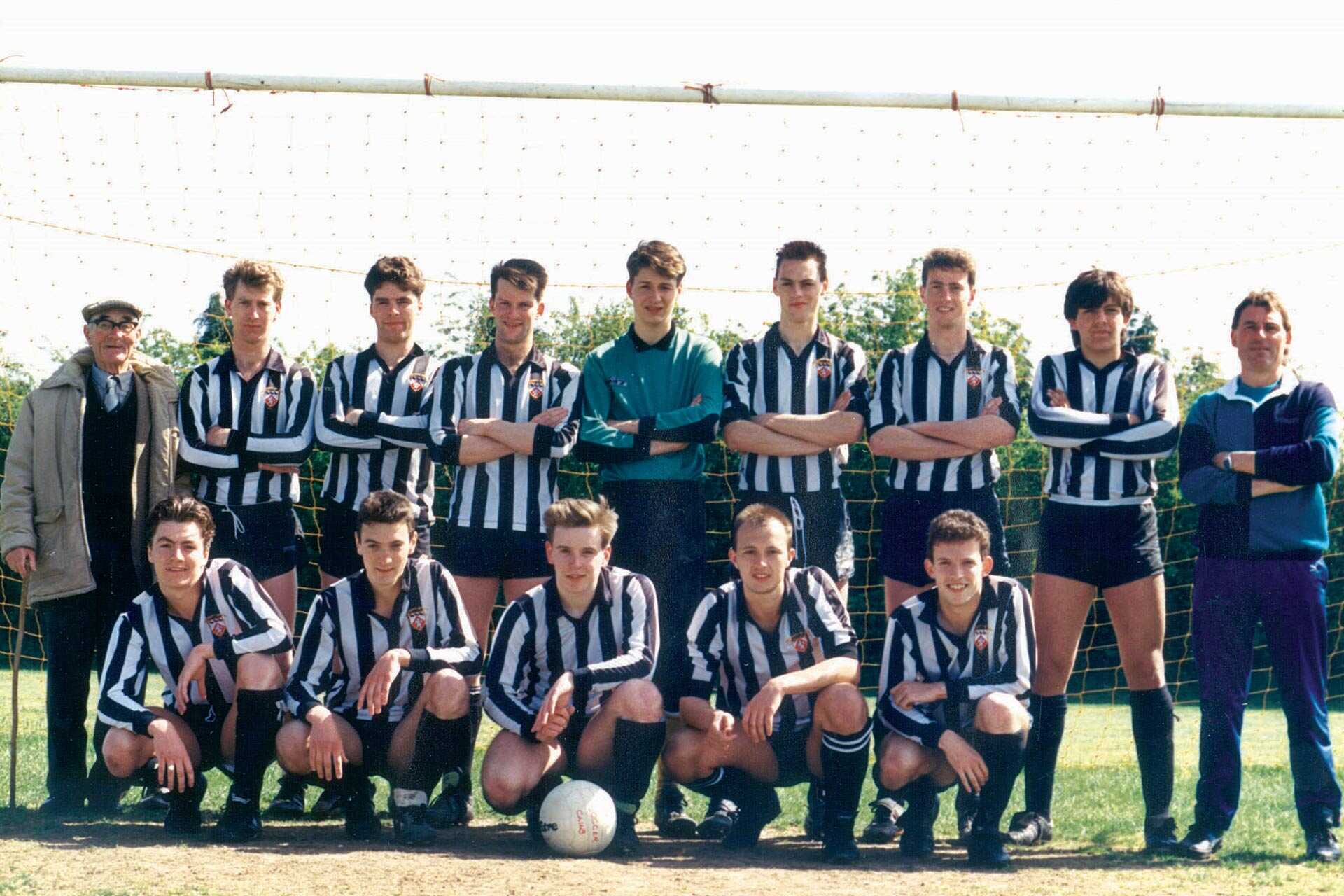
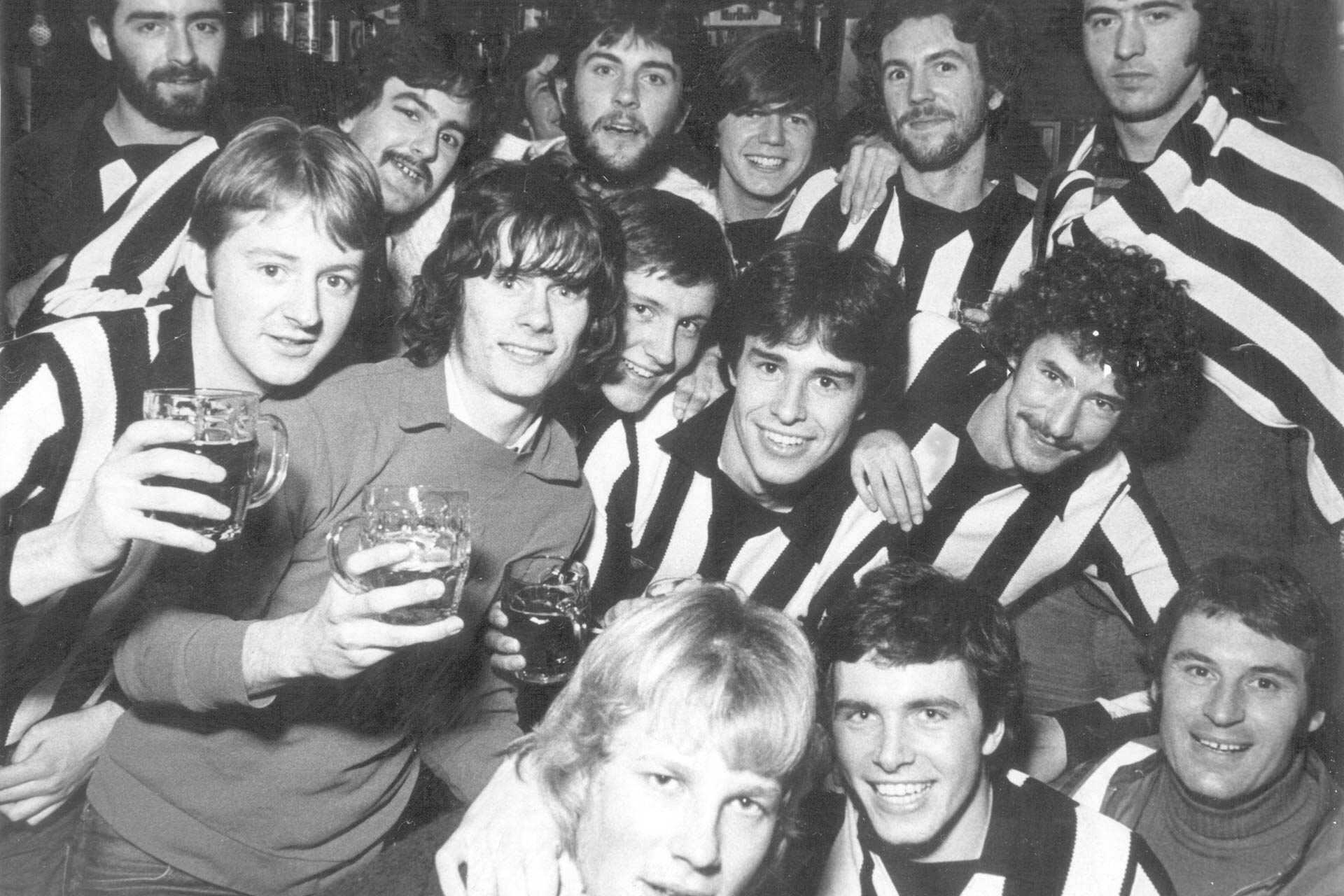
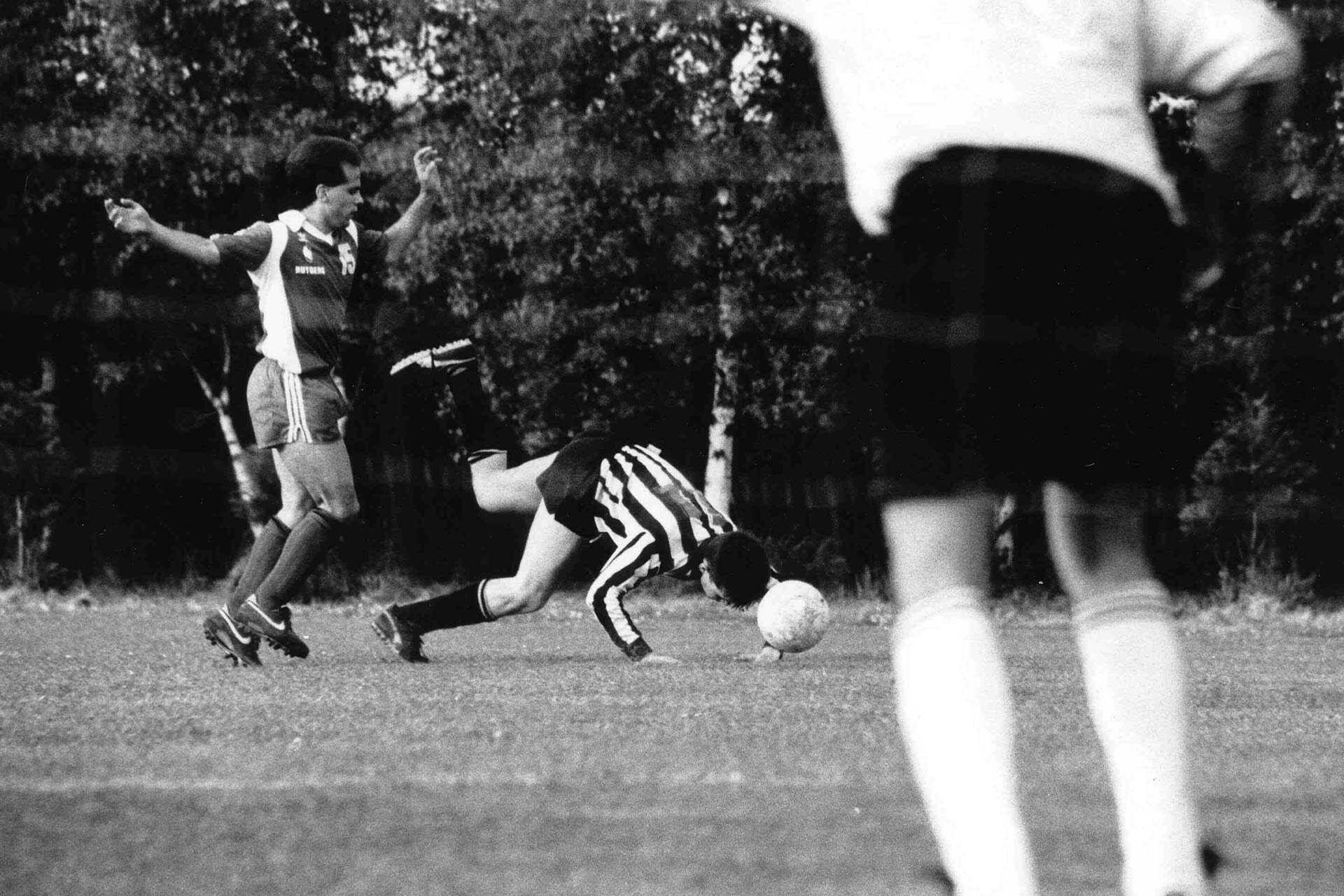
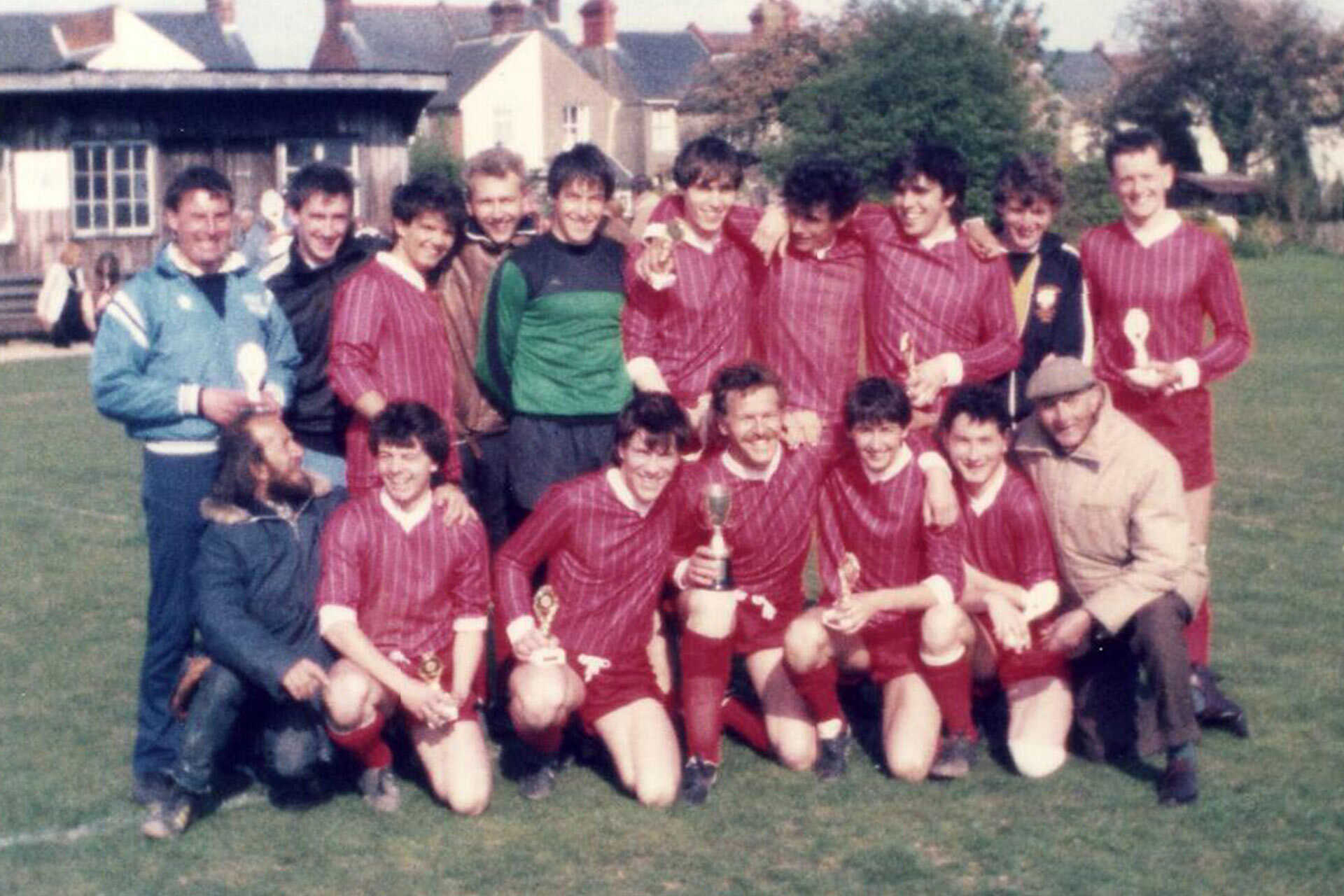
He retired from his post as Director of Sport at the University of Kent in 2007 and received some amazing news the day that he left. Back in 2005 Mike had applied for funding for a brand-new sports pavilion, which had been turned down, but with Graham Holmes, Assistant Director, he put together a new application. Mike learned that Kent had been awarded funding of £897,000 from the Football Foundation, which was one of highest grants ever given at the time.
So it’s thanks to Mike and Graham that we have a pavilion here today that so many students, staff and alumni continue to enjoy.
Mike’s legacy continues at the University through his organisation of an annual football reunion which has been held since 2007. The event involves a 5-a-side tournament, followed by a presentation from Mike, and dinner.
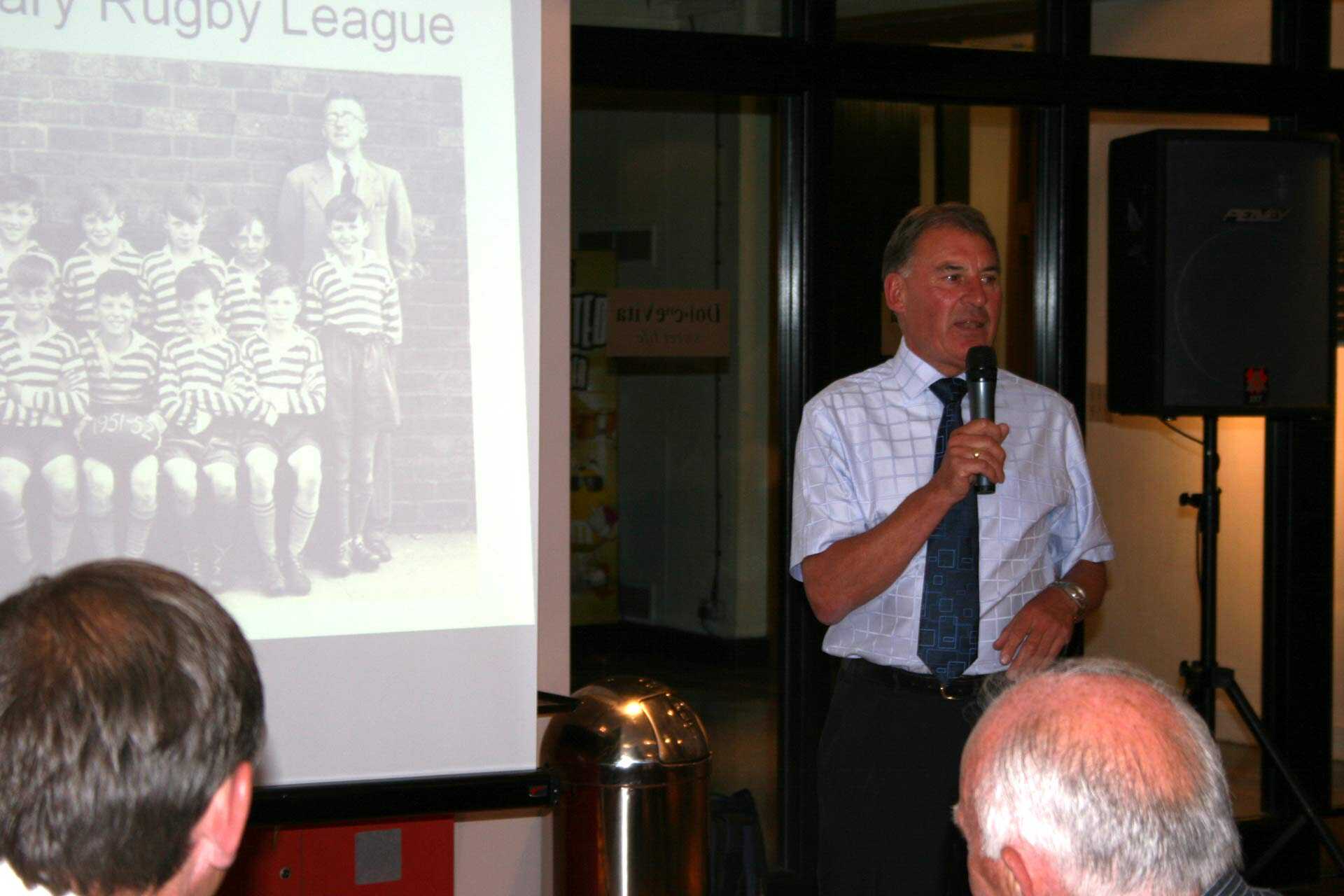
Recognition
“When I ran the football club, at the end of the season, I organised a football dinner. When I retired from the University, I was asked by a lot of the footballers to continue the football dinners. I ran the first reunion in 2007 and 85 people came. On that particular day, I had been told that I had been awarded an MBE, so we announced it to everyone there and it was absolutely great."
“I’m hoping we can expand the reunion so that anyone who played for the University can come back and join in. The idea behind it all is to return with friends and the people they used to play with. What is really interesting is that it’s like they’ve never been away. Everyone’s reminiscing. In some cases, they haven’t seen each other for 30-40 years but you wouldn’t think that. It’s incredible. I also like the idea that it’s a family occasion too and many ex-players return with family and friends.”
The football reunion returned this year on Saturday 11 September 2021, as the tradition continued for a 14th year! Make sure to keep in touch with the Alumni Team for information about the 2022 Alumni Football Reunion.